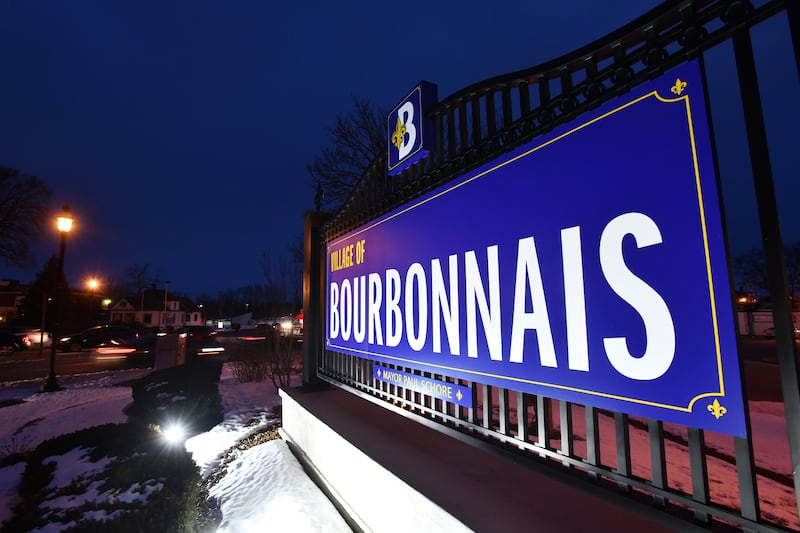BOURBONNAIS - Bourbonnais officials will hear the first reads for two ordinances that deal with a grocery tax and sales tax at Monday’s board meeting.
While the state of Illinois is phasing out its 1% grocery tax that it disbursed to local municipalities, legislators put wording in the bill that allows non-home rule municipalities to approve ordinances to implement their own 1% grocery tax.
During an Economic and Community Development committee meeting Wednesday, trustees discussed both the grocery and sales taxes.
The grocery tax includes most food items. The sales tax excludes grocery items, such as food as well as vehicle titles or registrations in the state, according to state law.
With the state phasing out the grocery tax on Jan. 1, 2026, Bourbonnais Finance Director Tara Latz said the village would lose $750,000.
During Wednesday’s meeting, Latz read off a list of 20 non-home rule communities that passed the grocery tax legislation. It included Beecher, Bradley, Herscher, Dwight, Crete and Frankfort.
More than 150 municipalities have passed legislation allowing for the grocery tax, as of the beginning of May, according to the Illinois Department of Revenue.
Administrator Mike Van Mill said it is important to Bourbonnais property owners to know neither the grocery tax or sales tax will be a direct tax on them.
“While the village is looking to pass these, this isn’t an actual tax on them,” Van Mill explained.
“This comes from people who travel here and might stop at one of the gas stations in town, or buy groceries at one of the grocery stores here.”
When it comes to the 1% sales tax increase, Van Mill said it is important what the benefits are for homeowners in the village.
The average savings for a homeowner would be between $160 and $180, he said.
“It’s important to emphasize the board is very much committed to having a property tax rebate program for homeowners,” Van Mill said.
The village tried two times before to pass a referendum for a 1% sales tax. The last was in 2022.
Trustee Craig Toepfer said the second referendum was a bit confusing. He was a resident at that time.
“The communication (with residents) I didn’t feel like was that great. It made sense to me because I deal with numbers every day, but you have to make it very clear as day,” Toepfer said.
If passed, both ordinances will need to be filed with the Illinois Department of Revenue by Oct. 1 for them to begin on Jan. 1, 2026.
The 1% increase on the sales tax bump would increase Bourbonnais’ current rate of 6.25% to 7.25%
“I just would like to be clear that if we’re doing this, that this is being done with the intention that we’re going to do the rebate as well,” Trustee Angie Serafini said.
Latz said the details will be worked out about how the rebate plan works.
“Once those details are set, we would put that out to the community,” Latz said.

:quality(70)/author-service-images-prod-us-east-1.publishing.aws.arc.pub/shawmedia/56d71ceb-065f-4b89-a313-e8a4268a29ca.png)